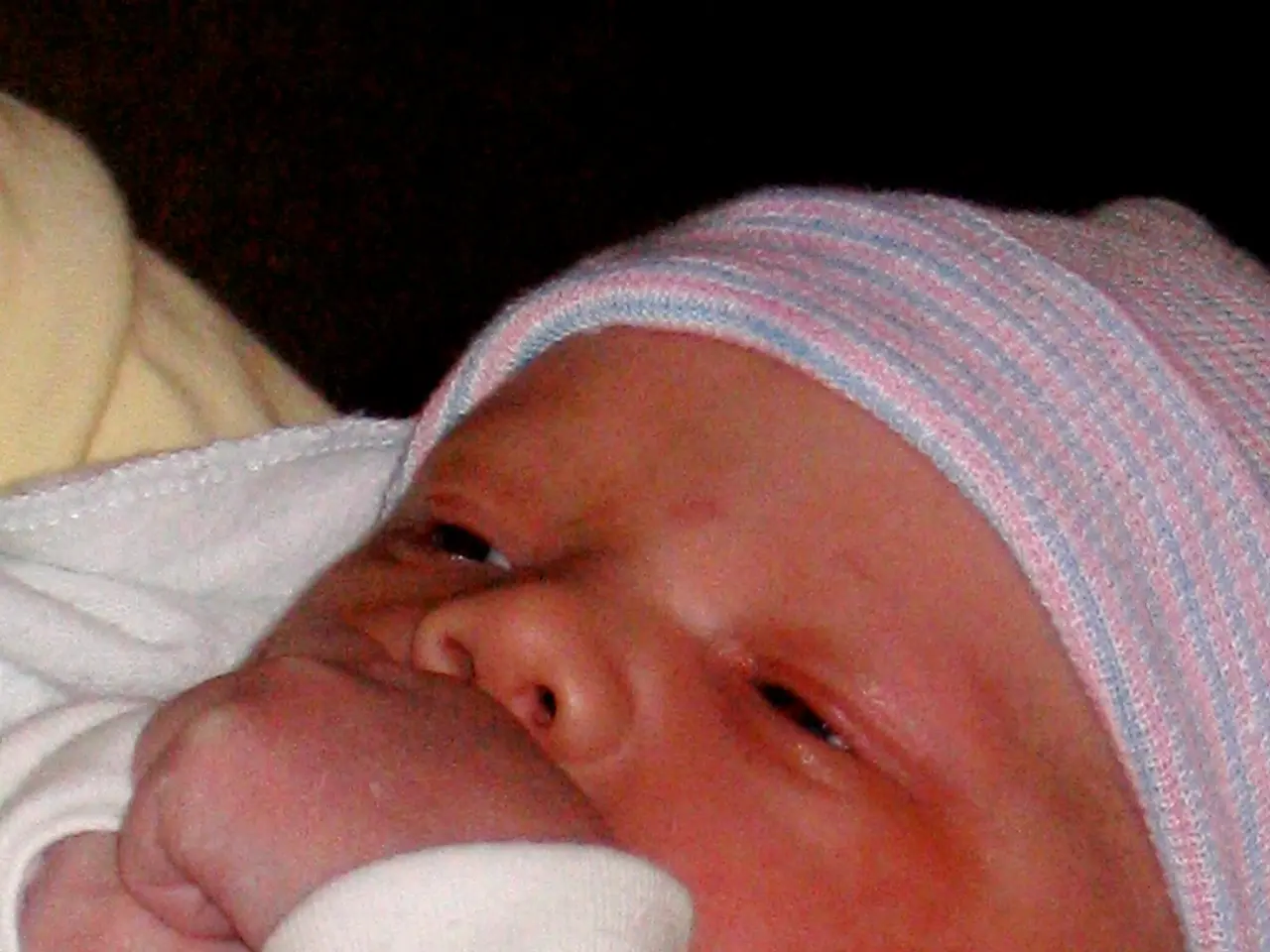Essential Skin Care for Newborn Babies: Crucial Information for Nigerian Parents
In the vibrant and diverse nation of Nigeria, newborns face unique skincare challenges due to the warm and humid climate, cultural practices, and traditional baby care methods. To ensure that your baby's skin remains in optimal condition, it's crucial to be well-informed and adopt a gentle, hygienic skincare routine.
Firstly, maintaining a moisturized environment for your baby is essential, especially during the dry seasons. Using a humidifier can help keep the air moist, which in turn aids in maintaining the baby's skin health.
Choosing the right diaper products is also crucial. Opt for diapers with soft, breathable outer layers and hypoallergenic materials to reduce the risk of irritation. Regular diaper changes and proper cleaning techniques are vital to maintain a newborn's skin health. Ensure you wash your hands thoroughly before each change and allow the diaper area to air dry.
Caring for a newborn's skin involves using mild, fragrance-free cleansers. Avoid excessive bathing and moisturize regularly to keep the skin hydrated, protected, and promote the development of a strong skin barrier against infections.
Moisturizing is key to keeping newborn skin hydrated and healthy. Emollient moisturizers and balms designed for newborns are ideal for maintaining the skin’s moisture barrier. Using separate, clean towels or washcloths when drying the baby’s face can reduce the risk of cross-contamination and skin irritation.
Due to Nigeria’s warm and humid climate, newborn skin can be prone to rashes, dryness, and inflammation. Parents are advised to use specially formulated baby soaps that are mild and safe for infant skin, avoiding harsh chemicals or fragrances that might irritate the skin.
In the cultural context where traditional baby care methods are common, incorporating modern skincare practices such as moisturizing and gentle cleansing helps prevent common skin problems seen in Nigerian babies. When rashes or redness develop, treatment with mild topical steroids followed by moisturizers and protective balms, such as cica-based balms that form a protective layer over the skin, can help calm inflammation without causing harm.
During the rainy season, newborns should be protected from rain and cool temperatures by dressing them in warm, dry clothing and using umbrellas or portable shelters when going outside. During hot and dry seasons, babies should stay hydrated by frequent breastfeeding and avoiding exposure to direct sunlight for extended periods.
By addressing common skincare concerns such as cradle cap, heat rash, and dry skin, Nigerian parents can ensure their newborns have healthy and nourished skin. Remember, newborn skin is delicate, thin, and prone to various skin conditions. After bathing, gently pat the baby's skin dry and apply a fragrance-free, hypoallergenic moisturizer.
Lastly, when in doubt, consult with a pediatrician. If a baby's dry skin persists or worsens, seek professional advice for further evaluation and guidance. With the right knowledge and care, you can help your newborn navigate the unique skincare challenges they face in Nigeria.
- In addition to a hygienic skincare routine, breastfeeding plays a crucial role in promoting the overall health and wellness of Nigerian babies.
- When it comes to parenting, obtaining a good education about proper skin care for babies is vital to maintain a baby's skin health and prevent conditions such as rashes and dryness.
- By adopting modern skincare practices, such as gentle cleansing and moisturizing, families can help minimize the impact of warm and humid climates on their baby's skin.
- Science has shown that moisturizing, hydrating, and promoting healthy diaper practices are essential for the overall safety and well-being of newborns.
- Considering the unique skincare challenges faced by newborns in Nigeria, some parents choose to incorporate traditional baby care methods with evidence-based skincare practices to ensure their baby's skin remains healthy and strong.
- By advocating for gentle, hygienic skincare routines in their communities, parents contribute to the overall health and wellness of the next generation of kids, ensuring a vibrant and thriving family now and into the future.




